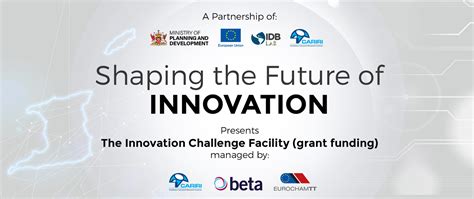Advancements in nanoscience are revolutionizing industries, creating unprecedented opportunities for skilled professionals. With the global nanoscience market projected to reach $126.2 billion by 2025, the demand for individuals with expertise in this cutting-edge field is soaring.

Industries Leading the Nano Science Job Market
The applications of nanoscience extend across a wide range of sectors, including:
- Electronics and Semiconductors: Nanoscale devices and materials enhance electronic performance and miniaturization.
- Energy and Environment: Nanotechnology enables the development of efficient energy storage, solar panels, and pollution control technologies.
- Healthcare and Biotechnology: Nanoscience drives breakthroughs in drug delivery, diagnostics, and personalized medicine.
- Aerospace and Defense: Nanotechnology contributes to lightweight materials, advanced sensors, and protective coatings for military and space applications.
- Consumer Products: Nanoscience enhances product durability, functionality, and aesthetics in industries such as textiles, cosmetics, and packaging.
Roles Involving Nano Science
Professionals with backgrounds in nanoscience find employment in various roles, including:
- Nanoengineers: Design, develop, and manufacture nanoscale devices and materials.
- Nanotechnologists: Apply nanoscience principles to solve technological challenges in specific industries.
- Nanomaterial Scientists: Research and synthesize new nanomaterials with tailored properties.
- Nanotoxicologists: Assess the safety and environmental impact of nanomaterials.
- Nanoscience Educators: Teach and train the next generation of nanoscientists.
Skills and Qualifications
Individuals pursuing nano science jobs typically possess:
- Education: A master’s degree or PhD in nanoscience, materials science, physics, chemistry, or a related field.
- Technical Skills: Expertise in nanomaterial synthesis, characterization, device fabrication, and modeling.
- Communication and Collaboration: Ability to effectively collaborate with scientists, engineers, and industry stakeholders.
- Problem-Solving: Strong analytical and critical thinking skills to address complex nanoscience challenges.
- Innovation: A passion for pushing the boundaries of nanoscience and developing novel applications.
Motivations and Rewards
Individuals are drawn to nano science jobs for several reasons, including:
- Intellectual Curiosity: The opportunity to explore the fascinating world of nanoscience and make groundbreaking discoveries.
- Impactful Work: Contributing to advancements that have the potential to transform industries and improve lives.
- Collaboration: Working alongside brilliant minds to solve complex scientific challenges.
- Growth Potential: Nanoscience is a rapidly growing field with ample opportunities for professional development and career advancement.
- Excellent Salaries: Nano science jobs offer competitive compensation packages and benefits.
Benefits of a Nano Science Career
Pursuing a career in nanoscience offers numerous benefits, such as:
- High Earning Potential: Nanoengineers and nanotechnologists are among the highest-paid professionals in the STEM field.
- Job Security: The growing demand for nanoscience experts ensures job stability and long-term career prospects.
- Innovation and Impact: Nanoscience professionals have the opportunity to drive innovation and make a significant impact on society.
- Challenging and Rewarding Work: The field offers intellectual stimulation, problem-solving opportunities, and a sense of accomplishment.
- Global Recognition: Nanoscience research and applications have worldwide reach, providing opportunities for international collaboration and recognition.
Pain Points in the Nano Science Job Market
Despite the high demand for nanoscience professionals, there are some challenges faced by the industry:
- Skill Gap: A shortage of qualified individuals with the necessary skills and expertise in nanoscience.
- Competition: Intense competition for top talent, leading to high salaries and recruitment challenges.
- Funding Uncertainty: Funding for nanoscience research and development is often subject to political and economic fluctuations.
Future Trends in Nano Science
The future of nanoscience is bright, with ongoing advancements and emerging applications across industries. Some key trends include:
- Nanomedicine: Nanoscale technologies will revolutionize healthcare, enabling targeted drug delivery, regenerative medicine, and personalized diagnostics.
- Nanomaterials for Energy: Nanotechnology will enhance the efficiency and sustainability of energy production and storage technologies.
- Nanoelectronics: Nanoscale devices will push the boundaries of Moore’s Law, leading to more powerful and efficient computing systems.
- Nanomanufacturing: Advanced nanomanufacturing techniques will enable the scalable and cost-effective production of nanoscale materials and devices.
- Nanobiotechnology: The convergence of nanoscience and biotechnology will lead to new breakthroughs in biomaterials, biosensors, and gene editing.
FAQs
1. What is the average salary for nano science professionals?
According to the U.S. Bureau of Labor Statistics, the median annual salary for materials scientists and engineers, which includes nanoengineers and nanotechnologists, is $100,090.
2. What are the job prospects for nano science graduates?
The job outlook for nanoscience professionals is expected to be very good, with a projected growth rate of 3% from 2021 to 2031. This is faster than the average growth rate for all occupations.
3. What are some of the ethical concerns associated with nano science?
Ethical concerns arise due to the potential risks associated with the use of nanomaterials and their impact on human health and the environment. These concerns need to be carefully considered and addressed throughout the research and development process.
4. What is the difference between a nanoengineer and a nanotechnologist?
While both roles involve nanoscience, nanoengineers focus on the design and fabrication of nanoscale devices and materials, while nanotechnologists apply nanoscience principles to solve technological problems in various industries.
5. What are some of the emerging applications of nanoscience?
Some emerging applications of nanoscience include nanobots for medical diagnostics and drug delivery, self-cleaning surfaces, water purification systems, and ultra-efficient solar cells.
6. What are the challenges facing the nano science industry?
The industry faces challenges such as the skill gap, competition for top talent, and funding uncertainty, which need to be addressed to ensure continued growth and innovation.
7. What advice would you give to someone considering a career in nanoscience?
Develop a solid foundation in nanoscience principles, gain practical experience through internships or research projects, and stay updated with the latest developments in the field.
8. How can I learn more about nano science careers?
Attend industry conferences, network with professionals in the field, and explore online resources, such as the websites of professional organizations like the Nano Science and Technology Institute.
